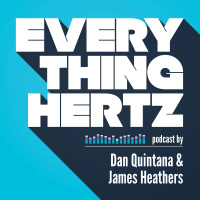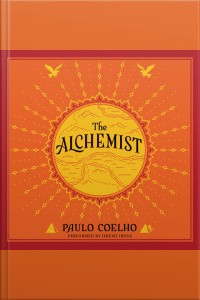Sinopsis
A podcast by scientists, for scientists. Methodology, scientific life, and bad language. Co-hosted by Dr. Dan Quintana (University of Oslo) and Dr. James Heathers (Northeastern University)
Episodios
-
135: A loss of confidence
05/07/2021 Duración: 50minDan Quintana and James Heathers chat about well-known psychology studies that we've now lost confidence in due to replication failures and the role of auxiliary assumptions in hypothesis-driven research. Other links The reversals in psychology website (https://www.gleech.org/psych) Anne Scheel and team's paper (https://doi.org/10.1177%2F1745691620966795) on whether you’re ready to test hypotheses Homer Simpson burning bridges meme (https://youtu.be/PnnXc3T_pK8) The paper (https://doi.org/10.1016/j.jesp.2016.02.003) that suggests replications will make psychology too boring and nobody will want to study it Daniel Lakens’ blog post (http://daniellakens.blogspot.com/2017/07/impossibly-hungry-judges.html) on the hungry judges study Everything Hertz on social media - Dan on twitter (https://www.twitter.com/dsquintana) - James on twitter (https://www.twitter.com/jamesheathers) - Everything Hertz on twitter (https://www.twitter.com/hertzpodcast) - Everything Hertz on Facebook (https://www.facebook.com/everyth
-
134: Paywalled questionnaires
21/06/2021 Duración: 56minWe discuss a recent retraction triggered by the authors not paying a copyright fee to use a questionnaire (that also happened to be critical of the original questionnaire). Links for stuff that we mention: The paper (https://molecularautism.biomedcentral.com/articles/10.1186/s13229-021-00427-9) that was retracted for not getting the correct licence for a questionnaire The retraction notice (https://molecularautism.biomedcentral.com/articles/10.1186/s13229-021-00446-6) for this paper The Spectrum piece (https://www.spectrumnews.org/news/copyright-claim-prompts-retraction-of-study-on-alexithymia-in-autism/) that discusses this story Why most online recipes begin with some ridiculous story (https://copyrightalliance.org/are-recipes-cookbooks-protected-by-copyright/#:~:text=Recipes%20can%20be%20protected%20under,anecdotes%20alongside%20a%20recipe's%20ingredients) Libkey (https://libkey.io/), which provides one-click access to papers via your institutional library subscription Everything Hertz on social media -
-
133: Manuscript submission fees
07/06/2021 Duración: 49minSome journals use nominal manuscript submission fees to discourage frivolous submissions. However, it has been suggested that increasing submission fees could reduce article processing charges. Dan and James discuss this proposal, along with the recently released code of conduct for scientific integrity from the Swiss Academies of Arts and Sciences. James’ Atlantic piece (https://www.theatlantic.com/technology/archive/2021/06/microchipped-vaccines-15-minute-investigation/619081/?utm_source=twitter&utm_medium=social&utm_term=2021-06-03T12%3A00%3A56&utm_content=edit-promo&utm_campaign=the-atlantic) Submission fees for mansucripts The scholarly kitchen blog post (https://scholarlykitchen.sspnet.org/2018/09/20/plan-t-scrap-apcs-and-fund-open-access-with-submission-fees/) We have a new partner: Paperpile! (http://paperpile.com/) Our PeerJ episode (https://everythinghertz.com/48) with Jason Hoyt The code of conduct (https://zenodo.org/record/4707560#.YLzReTaA4-Q) for scientific integrity from the Swiss Academies
-
132: Post-pandemic academia
17/05/2021 Duración: 50minDan and James discuss how academia should operate in a post-pandemic world. What pandemic practices should we keep and what should we abandon? Links and details: Quiz: Norwegian metal band or Norwegian town? Things are slowly getting back to normal in some (but not alI) countries. So what academic practices and routines should we keep from the pandemic and what should we kiss goodbye? Would it be possible to be physically located at your local university but to be employed/educated at another university? Video abstracts are now an option is some journals, here's an example (https://onlinelibrary.wiley.com/doi/10.1111/jpcu.13015) Presentations might be more convenient online, but it's hard to replicate a good poster session What is the actual point of academic conferences? The neuromatch academy https://academy.neuromatch.io/ The neuromatch academy paper (https://www.sciencedirect.com/science/article/pii/S1364661321000954?dgcid=author) in Trends in Cognitive Sciences Other links - Dan on twitter (www.twitte
-
131: Long live the overhead projector!
03/05/2021 Duración: 01h03minDan and James answer listener audio questions on indirect costs for research grants, the mind/body problem, and why many academics aren't trained to teach. They also profess their love for the overhead projector Some more details: * Should we require universities to justify overhead costs, like heating and electricity? * Overheads can inflate the costs of grants, some grants provide an additional percentage for overheads but others don’t allow this, which can eat into grants * Get to know the people in your local grant office! * Indirect costs at MIT (https://ras.mit.edu/facilities-and-administrative-fa-rates) * A primer (https://web.mit.edu/fnl/volume/295/zuber.html) on indirect costs and why they are important to MIT * Does it matter that we address the mind body problem in psychology? * On the teaching of the history and philosophy of science (or lack thereof) in psychology courses * Why aren’t academics better equipped to teach? * The 3Blue1Brown YouTube channel (http://www.3blue1brown.com/) Other lin
-
130: Normalizing retractions (with Dorothy Bishop)
19/04/2021 Duración: 01h14sDan and James chat with Dorothy Bishop (University of Oxford) about the importance of normalizing the retraction of scientific papers, publication ethics, and whether paper mills (companies that make fake papers at scale) are an issue in the psychological sciences Here are some links and stuff we covered: Dorothy's thoughts on how the adoption of open science practices has been progressing since we last had her on the show in June 2018 The European Research Council's new open access journal, which is free to publish in if you're ERC funded Dan's proposal of something similar in a 2019 The Chronicle piece (https://www.chronicle.com/article/how-to-bring-prestige-to-open-access-and-make-science-more-reliable) (free to read with email signup) Dorothy's recent blogpost (http://deevybee.blogspot.com/2021/03/time-for-publishers-to-consider-rights.html) on publication ethics The Society for Microbiology piece (https://asm.org/Articles/2021/March/Publication-Ethics-Barriers-in-Resolving-Figure-C) behind the blogpost
-
129: Transparency audits
05/04/2021 Duración: 56minDan and James discuss the recently proposed "transparency audit", why it received so much blowback, and the characteristics of successful reform schemes The specifics... The computational research integrity conference (https://cri-conf.org/) The transparancy leaderboard (https://etiennelebel.com/cs/t-leaderboard/t-leaderboard.html) proposed by Curate Science (https://curatescience.org/app/home) Our episode with Chris Jackson (https://everythinghertz.com/111), that James mentioned What about a transparency leaderboard for instiutions? What are the characteristics of grassroots reform schemes that worked? Other links - Dan on twitter (www.twitter.com/dsquintana) - James on twitter (www.twitter.com/jamesheathers) - Everything Hertz on twitter (www.twitter.com/hertzpodcast) - Everything Hertz on Facebook (www.facebook.com/everythinghertzpodcast/) Music credits: Lee Rosevere (freemusicarchive.org/music/Lee_Rosevere/) Support us on Patreon (https://www.patreon.com/hertzpodcast) and get bonus stuff! $1 a month: 20%
-
128: How do you generate new research ideas?
15/03/2021 Duración: 01h11minDan and James chat about how they come up with new ideas, why everyone seems to be trying to monetise their hobbies, and why it's so hard for most labs to have a singular focus of research. We had some problems with James' mic so the quality of his audio wasn't up our usual standard. To make up for this we've added one of our older bonus episodes at the end of this conventional episode (this begins at 54:18). These bonus episodes are typically only made available for our Professor Fancypants Patreon patrons, but now you'll get to hear one! Other notes and links: The half-serious "Highlander" bounty program from Noah Haber (https://twitter.com/NoahHaber/status/1370045749287923715?s=20) The metapsy journal (https://open.lnu.se/index.php/metapsychology/about) How do we come up with new ideas? What James watches and listens to in his spare time The urge to monetise your hobby The "Let's do nothing (https://www.amazon.com/Lets-Do-Nothing-Tony-Fucile/dp/0763652695)" kids book "How to Do Nothing (https://www.amazon
-
127: Speak up or shut up?
01/03/2021 Duración: 51minWe discuss when is the right time in your academic career to begin speaking up to critique your research field or whether the risk of retaliation means you should shut up and keep your head down. This was a recorded Clubhouse chat, which includes some audience interaction at the end. Links and details: Moin Syed's blogpost (http://getsyeducated.blogspot.com/2021/02/the-time-for-criticism-is-now.html), which was the inspiration for this topic The 'proper' letter to the editor critique vs. a social media critique What about retaliation for speaking out? Differences between industry and academia Thank you to Yan, Louis, Evan for their contribitions to our chat! Other links - Dan on twitter (www.twitter.com/dsquintana) - James on twitter (www.twitter.com/jamesheathers) - Everything Hertz on twitter (www.twitter.com/hertzpodcast) - Everything Hertz on Facebook (www.facebook.com/everythinghertzpodcast/) Music credits: Lee Rosevere (freemusicarchive.org/music/Lee_Rosevere/) Support us on Patreon (https://www.patre
-
126: The division of scientific labor (with Saloni Dattani)
15/02/2021 Duración: 52minWe have a wide-ranging chat with Saloni Dattani (Kings College London and University of Hong Kong) about the benefits of dividing scientific labor, the magazine she co-founded (Works in Progress) that shares novel ideas and stories of progress, and fighting online misinformation Here are some links and other stuff we cover Follow Saloni on Twitter: https://twitter.com/salonium Why Saloni started the Works in Progress (https://worksinprogress.co/) magazine Overleaf (overleaf.com), for writing papers in LaTeX How science will benefit from the division of labour Public writing vs. scientific writing Why has behavioral science not been very useful in curbing the pandemic? A paper (https://www.sciencedirect.com/science/article/abs/pii/S0378378220302929) suggested a link between digit ratio (2D:4D) and sex differences in COVID fatalities, and another paper (https://psyarxiv.com/ht74e/) debunking this claim A paper (https://www.channel4.com/news/factcheck/factcheck-are-bald-men-at-greater-risk-of-severe-coronavi
-
125: Upon reasonable request
01/02/2021 Duración: 46minDan has a blue-sky proposal to increase data sharing—that funders mandate scholars to store and analyse data on their servers for which the funder decides what constitutes a reasonable data request (among other benefits) Other stuff covered: We return with part 2 of "overrated/underrated/appropately rated", in which James throws nouns at Dan and he responds with whether these things are overrated, underrated, or appropately rated. Joe Hilgard's blog post (http://crystalprisonzone.blogspot.com/2021/01/i-tried-to-report-scientific-misconduct.html) Dan' proposal that funders should require all funded researchers to store and perform their analysis on a central server, which would make it easier to share data, and then the funder could decide what "upon reasonable request" means, not the reseacher or the instution Long term vs. short term reform efforts Other links - Dan on twitter (www.twitter.com/dsquintana) - James on twitter (www.twitter.com/jamesheathers) - Everything Hertz on twitter (www.twitter.com/hertz
-
124: From Ptolemy to Takeshi's Castle
18/01/2021 Duración: 51minWe discuss under which circumstances retracting decades-old articles is worth the time. We also chat about why LinkenIn is underrated (yes, really) and special journal issues are overrated. A more specific list of topics and links: We play a game of "overated/underated", in which Dan has a list of stuff that he asks James whether these things are overrated or underated (or appropiated rated) Why LinkedIn is underated Graphical abstracts are underrated Online conferences are underrated Authors should have the chance to wildly speculate (as long as it's marked as wild speculation) Sourdough bread is so gorgeous that even hipsters can't ruin it Special journal themes are overrated Should we bother putting the energy into retracting old studies? The retracted article (https://www.karger.com/Article/FullText/512536) that Eysenck co-authored, entitled “Coffee-Drinking and Personality as Factors in the Genesis of Cancer and Coronary Heart Disease” THIS (https://youtu.be/TNScPDSRCzI) is Takeshi's Castle Other links
-
123: Authenticated anonymity (with Michael Eisen)
04/01/2021 Duración: 53minPart two of our chat with Michael Eisen (eLife Editor-in-Cheif), in which we discuss the pros and cons of collaborative peer review, journal submission interfaces, Michael's take on James' proposal that peer reviewers should be paid $450 dollars, why negative comments on peer reviews need to be normalised, plus much more. Some more details: - The pros and cons of collaborative peer review (in which all peer reviewers discuss the paper after all individual peer reviews have been submitted - How technology can constrain journal operations - The strange engineered delay in paper reviews (I doesn't take 2-3 weeks to review a paper) - Michael's proposal for a system in which people can nominate they have time in the near future to review a paper and then papers can be sent to them so they're rapidly reviewed - Journal submission interfaces - Michael's take on paying peer reviewers - Who owns peer reviews? - Would negative (anonomous or not) comments on an open peer review report penalise authors in the future?
-
122: Reoptimizing scientific publishing for the internet age (with Michael Eisen)
21/12/2020 Duración: 40minThe internet should have transformed science publishing, but it didn't. We chat with Michael Eisen (Editor-in-Chief of eLife (https://elifesciences.org/)) about reoptimizing scientific publishing and peer review for the internet age. Here what we cover and some links: How Michael co-founded PLOS (https://plos.org/) The book Dan mentioned on the history of the scientific journal (https://press.uchicago.edu/ucp/books/book/chicago/S/bo28179042.html) Why did eLife launch? What did it offer that other journals didn't? Nature's recently proposed $11k article processing fee proposal eLife's new "author-driven publishing" approach (https://doi.org/10.7554/eLife.64910), in which all submitted papers have to be posted as preprints Part two of our conversation will be released on January 4, 2021 Other links - Dan on twitter (www.twitter.com/dsquintana) - James on twitter (www.twitter.com/jamesheathers) - Everything Hertz on twitter (www.twitter.com/hertzpodcast) - Everything Hertz on Facebook (www.facebook.com/everyt
-
121: Transparent peer review
07/12/2020 Duración: 57minDan and James discuss the pros and cons of transparent peer-review, in which peer review reports are published alongside manuscripts, as a keynote feature at the recent Munin Conference on scholarly publishing. Here's what they cover and some links: Watch the video of this episode (https://youtu.be/1Xp3IXaq970) on the Everything Hertz YouTube page What is transparent peer-review? The permanancy of open peer review reports CLOCKSS (https://clockss.org/) provides a sustainable dark archive to ensure the long-term survival of Web-based scholarly content Open peer reviews provide additional info for historians What changes when you know that your review is going to be public? A Motte-and-bailey castle (https://en.wikipedia.org/wiki/Motte-and-bailey_castle) An update and summary of the 450 movement (https://medium.com/@jamesheathers/the-450-movement-1f86132a29bd) Involving patients/user representatives in the peer review and disemination process The GRIM test (https://en.wikipedia.org/wiki/GRIM_test) What about t
-
120: How false beliefs spread in science (with Cailin O'Connor)
16/11/2020 Duración: 47minDan and James chat with Cailin O'Connor (University of California, Irvine) about the how false beliefs spread in science and remedies for this issue Here's what they cover: Why should psychologist scientists learn about the philosophy of science? Cailin's new preprint on error propogation that she co-authrored Boyd and Richerson's "Culture and the Evolutionary Process" book (https://press.uchicago.edu/ucp/books/book/chicago/C/bo5970597.html) Episode 91 with Kristin Sainani (https://everythinghertz.com/91) that discussed magnitude based inference Christie Aschwanden (https://fivethirtyeight.com/features/how-shoddy-statistics-found-a-home-in-sports-research/) on Magnitude Based Inference The Misinformation age (https://yalebooks.yale.edu/book/9780300234015/misinformation-age), co-authored by Cailin Cailin's paper on the retraction of scientific papers (http://cailinoconnor.com/wp-content/uploads/2020/05/Retractions_in_Epistemic_Networks-2.pdf) With Scite, you can be alterted whether a given paper has been retr
-
119: Rules of thumb
02/11/2020 Duración: 56minDan and James discuss how rules of thumbs in science, such as those often applied to sample sizes and effect sizes, lead to mindless research evaluation. More info and links: Is there any justifcation for holding back the public posting of data becuase you're not done with your analyses We have a new episode partner, Scite (https://scite.ai/)! Scite helps researchers quickly see how a research paper has been cited and if it has been supported or disputed by subsequent research Get a 30% discount on a 12-month Premium Scite subscription. Use the coupon code: HERTZ (offer expires January 1, 2021) Lake Wobegon (https://en.wikipedia.org/wiki/Lake_Wobegon), were all the children are above average The tweet from Marco Altini (https://twitter.com/altini_marco/status/1321432168216858625) about his desk-rejected manuscript Sample size rules-of-thumb Effect size rules-of-thumb Dan's effect size distribution paper (https://pubmed.ncbi.nlm.nih.gov/27914167/) (Here's the preprint (https://osf.io/5y55v/) if you don't hav
-
118: Evidence-free gatekeeping
19/10/2020 Duración: 01h04minDan and James answer audio listener questions on the worst review comments they've received (and how the responded), their thoughts on the current state of preprints, and how institutional prestige influences researcher evaluations. Other points and links: Send in your audio question at our website (https://everythinghertz.com/audio-question) Listen to our episode with Chelsea Parlett-Pelleriti (https://everythinghertz.com/107), on memes, TikTok, and science communication The worst peer reviewers we have received How do we respond to bad peer review comments The Research Square (https://www.researchsquare.com/publishers/in-review) preprint server The current state of preprints The 'readiness scale' paper (https://rdcu.be/b8G3m) at Nature Human Behavior How the prestige of one's institition affects how they are assessed The mathematician Grigori Perelman (https://en.wikipedia.org/wiki/Grigori_Perelman), who declined the Fields medal (https://en.wikipedia.org/wiki/Fields_Medal) The Laboratory Life book (https
-
117: How we peer-review papers
05/10/2020 Duración: 01h04minDan and James choose a preprint and walk through how they would peer-review it. James also provides an update on his recent proposal that scientists should be paid for performing peer reviews for journals published by for-profit companies Specific links and topics: An update on the 450 movement (https://medium.com/@jamesheathers/the-450-movement-1f86132a29bd), which proposes that scientists should be paid for performing peer reviews for journals published by for-profit companies You should follow Overly Honest Editor (https://twitter.com/Edit0r_At_Large) on Twitter The Volkswagen fellowships (https://www.volkswagenstiftung.de/en/funding/our-funding-portfolio-at-a-glance/freigeist-fellowships) Emma Mills (http://www.research.lancs.ac.uk/portal/en/people/emma-mills(edc1db6a-ca34-4086-b16f-95dd24534887).html), from Lancaster University, asks us how we review papers We review this paper: "Direct perception of other people’s heart rate (https://psyarxiv.com/7f9pq)" The tweet from Maarten van Smeeden (https://twit
-
116: In my opinion
21/09/2020 Duración: 01h17minDan and James chat about a recent twitter discussion on open science funding and the benefits of Editors sharing their opinions online. James also shares three project proposals that he thinks deserves funding, which Dan ranks. Other stuff... The Twitter thread (https://twitter.com/tage_rai/status/1304985745157914624?s=20) from Tage Rai on conflicts of interest in funding on science The Raytheon Amphitheater (http://www.northeastern.edu/egan/raytheon.html) at Northeastern University How Nature Human Behavior evaluates your mansucripts (https://rdcu.be/b7otB), from episode 105 (https://everythinghertz.com/105). Good and bad experiences with Frontiers journals A contract (https://osf.io/5ey8g/) for getting paid for reviews Get access to our Patreon newsletter (https://www.patreon.com/hertzpodcast) The peer-review process (https://reviewer.elifesciences.org/reviewer-guide/review-process) at eLife James' three grant proposal ideas The taxi story (https://www.vg.no/nyheter/innenriks/i/21LV4B/topp-professor-tok-ta

















